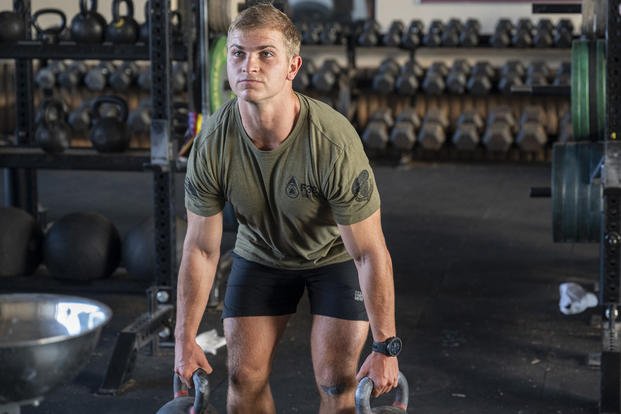Fitness
What to Do if Your Fitness Workouts Leave You Feeling Lethargic

During challenging training cycles, it’s crucial to self-assess and determine whether you’re experiencing negative performance results. While you might not feel at your peak during workouts, you might also notice that your performance isn’t as low as you anticipated. Consider this email from a prospective special operations candidate who’s putting in the work but might not be prioritizing recovery:
Hello Stew, I run 25 miles per week, swim 5k-6k yards a week (3-4 swims), and lift/calisthenics 4 times a week. Just this week, I have experienced the following:
- An easy 4-mile run at a jogging pace led to my heart rate skyrocketing to around 180-190 BPM
- Feeling lethargic during work
- General soreness around my legs
- Feeling slightly sick without actually having a cold (runny nose and lethargy)
- Running and swimming have been much slower this week.
Have you or your candidates experienced overtraining? How would you resolve/recover from this? Thanks, Max
Max, several factors could contribute to your current performance, such as a lower caloric intake (insufficient fuel), allergies, excessive caffeine consumption before a run or inadequate sleep quality.
Can you overtrain? Yes, but if you have progressed logically over months to build up to your current fitness levels, you are not necessarily overdoing it. Overtraining or under-recovery — it is the same thing.
You are not doing too much, but how long you have been training is also relative to your recent history. If you are starting with two hours a day of training, it can be tough for the first few months. “Doing too much” is also relative to your athletic history and tactical fitness progression.
Any special ops selection program is a lesson on recovering from overtraining. Do you do any mobility days, such as the ones I have placed in my programs? These easier days focus on nonimpact cardio, stretching, massaging and pool skills (drownproofing, treading, swim techniques). Placing mobility days at the middle and end of a week have been helpful for both recovery and acquiring skills and mobility in the water to improve performance with overall water confidence challenges.
Mixing in heavy lifting or higher-repetition calisthenics (upper/lower body) may still make you sore as the volume of higher-repetition, longer-distance cardio and heavy lifting do not mix well for recovery and performance improvements. Trying to get better at cardio events/calisthenics while lifting heavy weights does not mesh well. You can maintain all of the above, but seeking performance improvements in strength while running/swimming hard may not work. The same holds for working on running/swimming faster while lifting heavy weights. When you mix fitness elements on opposite ends of the fitness spectrum, you tend not to get better at anything and feel burned out.
To answer your question and issues specifically:
I have seen caffeine intake before cardio events increase heart rate too much. If you are not taking pre-workout or drinking caffeine, ensure you are hydrated. If it is not a simple fix, consider seeing a doctor to check for heart abnormalities.
Ensure your post-exercise nutrition is balanced in all the macronutrients (carbs, proteins, fats), and you get enough calories to function after workouts.
Ensure you stretch your legs after running, rucking, swimming with fins, lifting or doing leg calisthenics. If needed, cut the volume in half for a week.
It is allergy time in most places around the United States, so consider a daily allergy medication.
Given all of the above, it is normal to see a drop in performance. Take a few days, add a mobility day with easy swim skills workouts and a rest day, and see how you feel. If you have not been neglecting nutrition, sleep, stretching, foam rolling or using too much caffeine, go to a doctor and get a physical if a few days of rest does not help you.
One system we use with our programming is three weeks of focused calisthenics and cardio workouts (no lifting) and a week of lifting with reduced (50%) calisthenics and cardio. This “deload” is useful for resting the joints and maintaining strength gains. You can flip it and do three weeks of lifting and a “deload” week of calisthenics and cardio. We call this our Seasonal Tactical Fitness Block Periodization training model.
Read the article and watch this video about nutrition for special ops with Army nutritionist Lt. Col. Nick Barringer.
Read the article and watch the video about recovery for intense military training.
Want to Learn More About Military Life?
Whether you’re thinking of joining the military, looking for fitness and basic training tips, or keeping up with military life and benefits, Military.com has you covered. Subscribe to Military.com to have military news, updates and resources delivered directly to your inbox.










